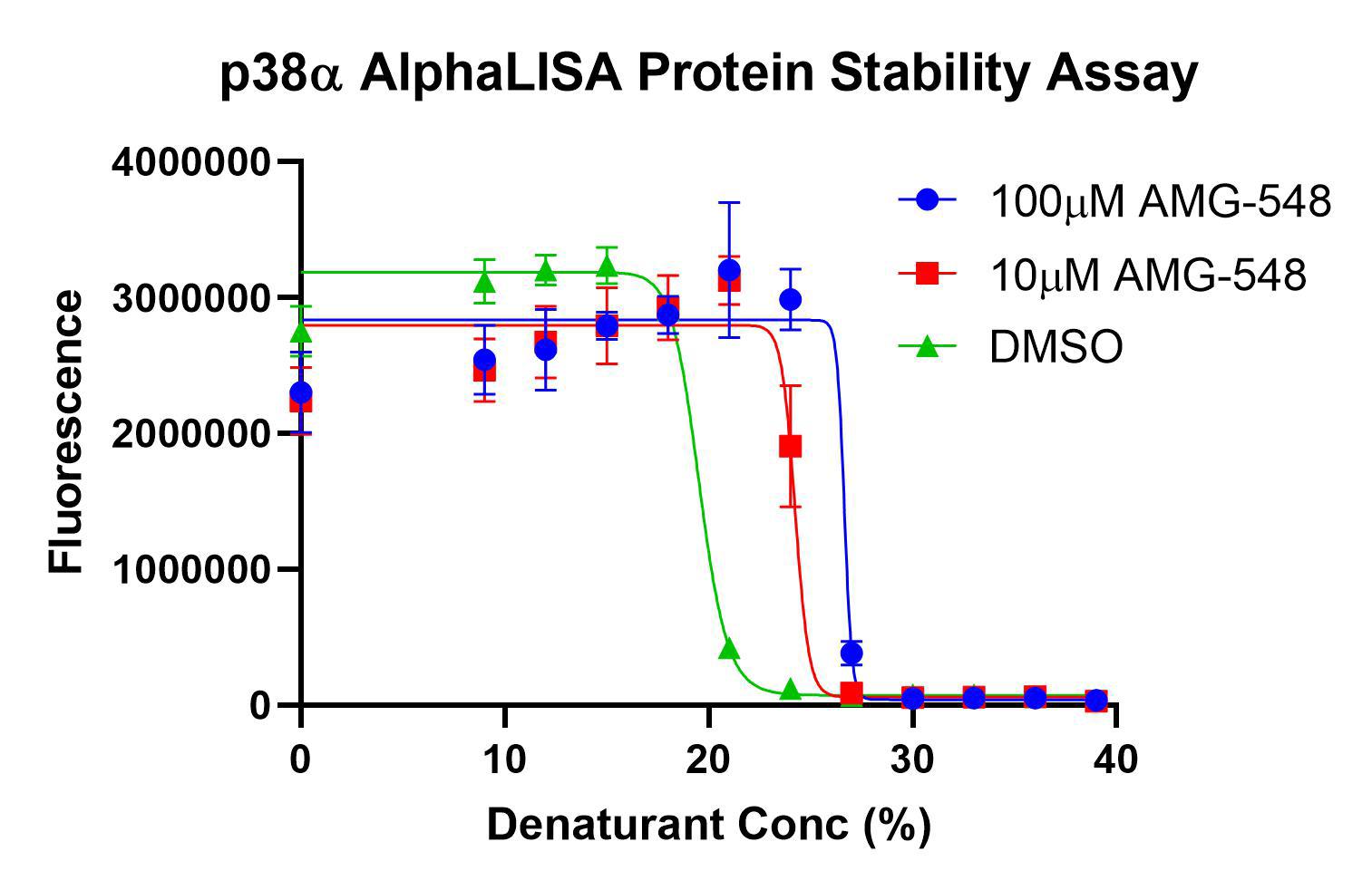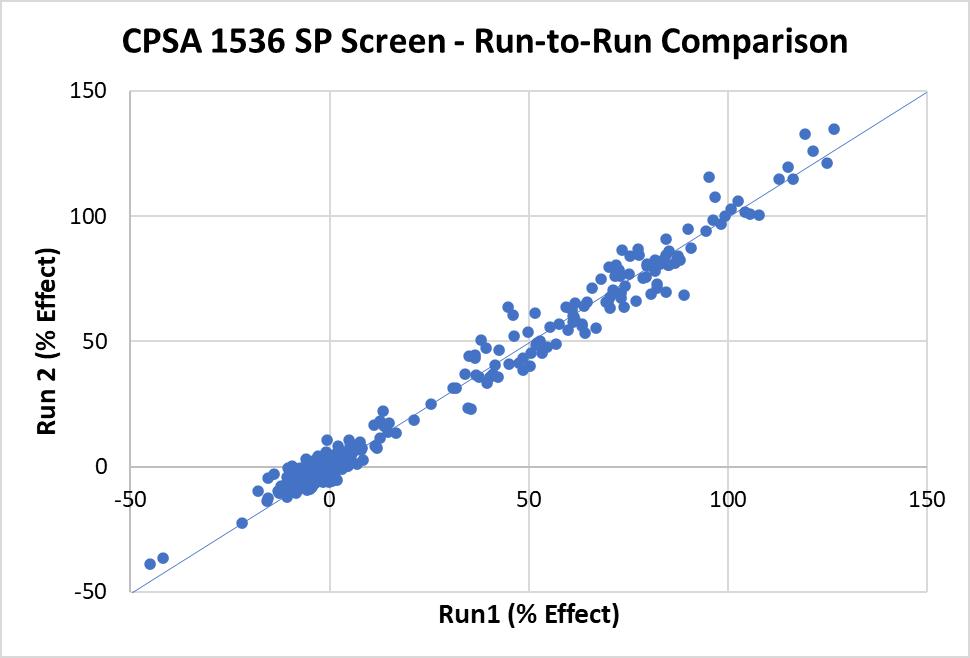MDC Chemical Protein Stability Assay (CPSA) a novel target engagement approach
John Vincent, Matthew Burnham and Martin Main Medicines Discovery Catapult, Block 35, Alderley Park, Cheshire, SK10 4ZF, UK. john.vincent@md.catapult.org.uk
Abstract


Methods to rapidly determine ligand target engagement are valuable tools in drug discovery. Developing a straightforward plate-based assay workflow allows compatibility with HTS settings. MDC has developed a proprietary lysate-based chemical protein denaturation technology to confirm cellular protein targ et engagement by monitoring compound-binding induced stabilisation in a simple, automation- friendly, scalable, cost-effective assay. The Chemical Protein Stability Assay (CPSA) is a simplified single well, plate -based workflow without plate transfer, suited to compound screening and hit finding at up to 1536w capacity and is compatible with multiple assay endpoints. The patented technology is not dependent on the labelling of a tracer ligand or modification of the target protein. The use of cell lysate fits well with la rge-scale applications where confounding cellular permeability effects are not desirable at early hit ID, while also avoiding issues with large -scale purification of protein targets. The simplicity of the workflow and reagents reduces assay variability and produces consistent data. CPSA is broadly applicable to a wide -range of cellular targets.
Comparison to established workflows

Proof of concept

Using HEK293 lysate as a source of protein, the compound AMG-548 was shown to cause the stabilisation of p38α MAPK when denatured using a chemical denaturant. Treatment with or without compound lead to a clear concentration- dependent curve shift, detectable in a single-well assay using an AlphaLISA® Immunoassay endpoint (Fig. 2). A range of denaturants can be used to build an optimum assay for the chosen target, allowing the unfolding of more stable proteins at less endpoint -detrimental chemical concentrations (Fig. 3). CPSA has been shown to be compatible with a range of endpoint technologies and a range of target proteins.

Conclusions
The MDC CPSA is a proprietary simple, lysate -based, single-plate, mix and read assay able to measure target engagement by assessing protein stability, when unfolded using a chemical denaturant. Thus, it is highly amenable to multi- well plate compound screening. The assay has several advantages over existing assays that make it reliable and easy to use –
• Basic level of equipment allows accessibility to wide range of labs.
• Relatively few steps makes it simple to run and allows scalability to HTS.
• No high temperature incubations.
• No lysis step reduces inconsistencies.
• No plate transfer increases application to use in HTS.
• Use of lysate reduces variability that may be seen with cells.
• Use of lysate removes need to generate isolated protein.
• Inexpensive and cost-effective.
Compound screening and concordance
Fig. 4

Using a fixed amount of denaturant, CR curves can be generated to enable accurate potency determination using the CPSA (Fig. 4).


5
A set of 23 compounds with a range of activities against p38α MAPK, were tested in both the CPSA and an established alternative target engagement assay. Good agreement in rank order was seen between the data generated from the two different assays (Fig. 5).
A 1536w CPSA using a set of 435 inhibitors with varying potencies to BRD4 was run to generate single conc (10uM) % effect data using a HiBiT tagged protein endpoint (Fig 6). The compounds demonstrated a range of stabilisations of target in the presence of a fixed conc of denaturant and highly reproducible data between runs on separate occasions. Excellent Z’ (>0.6) and %CV values (<10) were generated, validating the robustness of the assay. A 187compound subset was then run in 1536w 10pt CR (Fig 7). Data was generated on two separate occasions and gave excellent agreement between runs. Further validation was carried out by testing a 10K set of compounds in duplicate.
MDC has developed a proprietary chemical protein stability assay (CPSA) that comprises a simple, cost -effective workflow, without transfer steps, and is applicable to compound profiling and hit identification. The patented assay is applicable to a range of protein targets and can be configured using a range of protein detection technologies. The CPSA can be used for the generation of high- quality data in both concentration response and single point format to detect engagement of compounds with target proteins. Data using the CPSA is comparable to that generated using established alternative techniques and demonstrates the application of this technique to compound screening and Hit finding activities.
